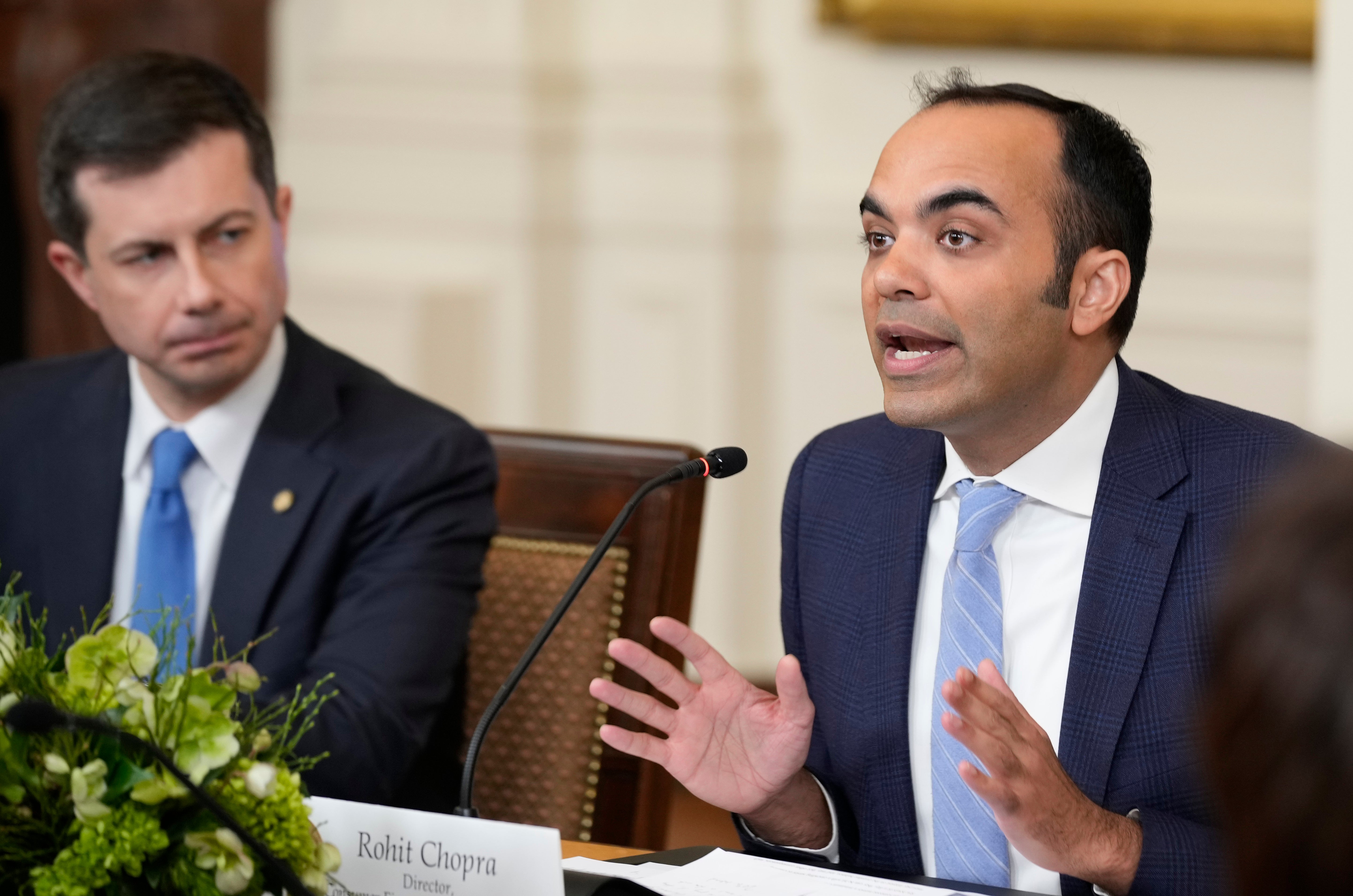Gov't to start looking for bias in small business lending
Banks will need to start reporting the demographics and income of small business loan applicants under new rules published by the Consumer Financial Protection Bureau on Thursday

Your support helps us to tell the story
From reproductive rights to climate change to Big Tech, The Independent is on the ground when the story is developing. Whether it's investigating the financials of Elon Musk's pro-Trump PAC or producing our latest documentary, 'The A Word', which shines a light on the American women fighting for reproductive rights, we know how important it is to parse out the facts from the messaging.
At such a critical moment in US history, we need reporters on the ground. Your donation allows us to keep sending journalists to speak to both sides of the story.
The Independent is trusted by Americans across the entire political spectrum. And unlike many other quality news outlets, we choose not to lock Americans out of our reporting and analysis with paywalls. We believe quality journalism should be available to everyone, paid for by those who can afford it.
Your support makes all the difference.Banks will need to start reporting the demographics and income of small business loan applicants under new rules published by the Consumer Financial Protection Bureau on Thursday.
It's a move that policymakers hope will lead to less discrimination and more transparency in the small business lending market, similar to how other laws have regulated the residential mortgage market for decades.
Under the Dodd-Frank Act, Congress mandated the bureau to start collecting data on small business lending decisions to look for patterns of discrimination. Implementation of the rule has taken more than a decade, and the bureau was sued by the California Reinvestment Coalition for its failure to start collecting this data.
Bank regulators have for decades collected data on residential mortgage applicants — including race, geography, whether the loan was approved and the interest rate — under a 1970s era law known as the Home Mortgage Disclosure Act. The data collected under HMDA has long been used by regulators and the public to look for potential signs of banks discriminating against borrowers, also known as redlining.
The size of the small business lending market is roughly $1.4 trillion, according to the CFPB. But there’s not much data on how banks and non-banks decide who to approve or deny for loans, and there’s no way of seeing — outside anecdotal reports — whether banks have discriminated against black and Latino small businesses.
“The impact of the rule will be in the comprehensive data that it produces, which can be used by lenders, borrowers, and the broader public to achieve better credit outcomes for small businesses and communities across the country,” said Rohit Chopra, director of the bureau, in a prepared statement.
Small business create roughly 60% of new jobs in the U.S., and the U.S. government puts billions of dollars of resources into supporting the creation of new businesses. During the pandemic, Congress gave $800 billion to small business through the Paycheck Protection Program to keep them operating.
While the bureau has issued its final rule on this issue, it make take a few years for the public to get access to the data. Banks will have to implement systems internally to start collecting the data, regulators will need systems to ingest it, and there will be a waiting period before the data is released.
Banks that originate at least 2,500 small business loans annually must start collecting the data in October 2024, with smaller banks having to collect the data in 2025 and 2026 depending on their size.